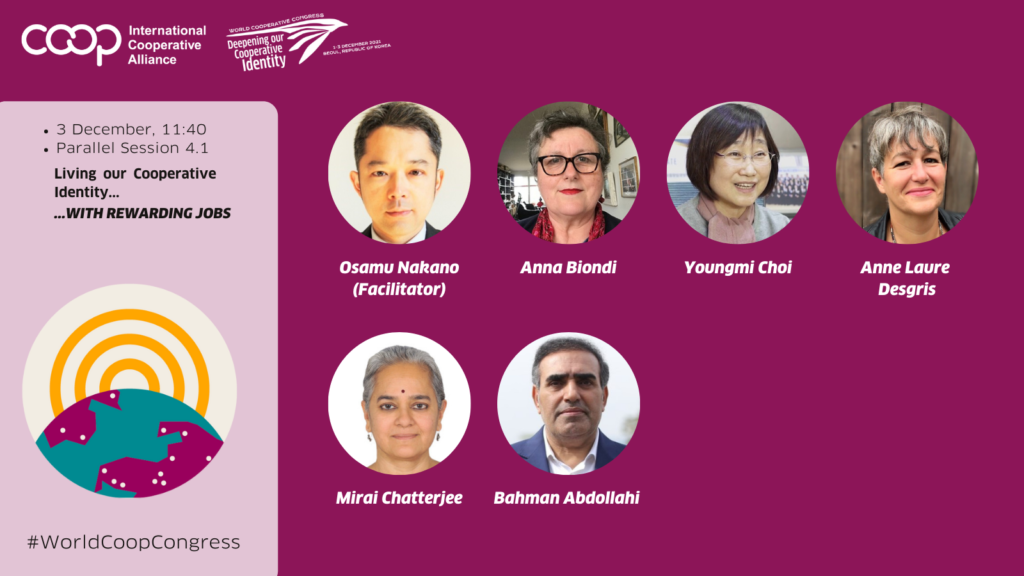
The cooperative contribution to the world of work was explored in a World Cooperative Congress parallel session on 3 December.
During the session, participants heard from Mirai Chatterjee, Chair of the SEWA Cooperative Federation in India, who explained how the organisation was empowering women in India. She highlighted that social protection was as important as creating jobs.
A recent survey conducted by SEWA found that 71% of its worker-members felt they had survived the pandemic because of the federation. She emphasised that cooperatives also had a role in pressing for policy changes. India has recently created a Ministry for cooperatives, which Ms Chaterjee thinks could be an opportunity to create more jobs for informal women workers.
Anne Laure Desgris, Director of SMart in Belgium mentioned some of the challenges faced by platform cooperatives, including the lack of legislation that recognises the model in countries like France and Belgium.
“The innovation generated by our models is constantly coming up against legislation against it,” she said.
Smart is a worker cooperative with over 35,000 members, operating in several European countries. In January Pôle Emploi Services, a French governmental employment agency, revoked the employer license of SMart, arguing that the employees of SMart and La Nouvelle Aventure are not subordinated to them.
Similar legislative challenges are faced by domestic workers in the Republic of Korea.
Youngmi Choi from Life Magic Care Cooperative explained that between 200,000-and 400,000 workers are not covered by Korean legislation. This meant that during the pandemic it was difficult for domestic workers to prove that their income was decreasing due to the pandemic – so the cooperative asked the government to waive that requirement for documentation. It also gave small loans to its members.
“In our cooperative we are members and also workers,” she said, adding that achieving legislative change required working with trade unions.
In May the Republic of Korea adopted new legislation that covers domestic workers, which she described as a step in the right direction.
However, she pointed out that current legislation does not cover worker cooperatives. “The word worker cooperative doesn’t exist, it’s not covered by legislation, you have to be an employer or an employee,” she said.
Alireza Banaeifar, International Affairs Manager at Iran Chamber of Cooperatives, Iran, talked about some of the measures his department had taken to support cooperative enterprises. These included running promotion and training centres and experience transfer programmes.
Anna Biondi from the ILO’s Bureau for Workers Activities (ACTRAV) joined the debate to share her organisation’s take on the role of cooperatives in the changing world of work.
“The discussion about the cooperative principles is crucial to rethinking the world of work,” she said.
She also pointed out that cooperatives and unions needed to work together more in order to campaign for quality public services, health coverage and social protections.
“I’m delighted that the ILO is part of this discussion. I listen carefully to this discussion and together with my colleagues I want to continue to support this important work,” she added.
